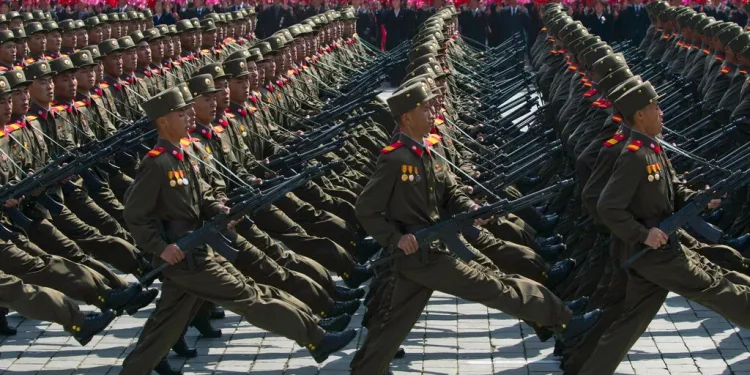It’s now over two and half years since Russia invaded Ukraine and the war between the two countries is now far more dangerously poised with far-reaching consequences for the rest of the world than what appeared before. The West’s fear that other countries may be sucked into the vortex of the Russia-Ukraine war is getting confirmed with fresh reports of several thousand North Korean troops arriving in Russia for training to take part in the war. The US and NATO have claimed at least 3,000 North Korean troops have been deployed in Russia since the beginning of October 2024.
This is a major development in this war in the heart of Europe as it signals the first concrete internationalisation of the conflict not only for Europe but also for the Indo-Pacific region. Till now, both sides had only been getting help from their allies – Ukraine from the West and Russia from Iran, North Korea and indirectly China. The assistance has so far been restricted to supply of material and equipment. The arrival of North Korean troops changes the scenario altogether. In fact, French President Emmanuel Macron mooted the idea in February of sending military instructors to Ukraine, but had to backtrack after it caused intense controversy in Europe.
Now, the US has joined Ukraine and South Korea in confirming reports of North Korean troops being present in Russia for taking part in Vladimir Putin’s war on Ukraine. South Korea’s National Intelligence Service has said that Pyongyang has sent around 3,000 troops, including special forces, to Russia’s far east for military training and acclimatising at the bases there before being deployed in the war. Ukraine released a video purportedly showing dozens of North Koreans lining up to collect Russian military fatigues. In the video, soldiers, believed to be from North Korea, are seen standing in line to pick up bags, clothes and other apparel from Russian servicemen.
From the beginning of Russia’s February 2022 invasion, North Korea has expressed strong support for Putin and the two countries signed a mutual defence pact over the summer, promising to expand military cooperation. This is now being interpreted as a pre-planned move by Russia to insulate North Korea against possible attack from the West in the event of the latter getting directly involved in the war.
The Pentagon’s threat that North Korea runs the risk of being considered “legitimate target” after sending its troops to Russia is no less alarming. Moscow and Pyongyang have repeatedly denied that there has been a deployment. A Russian Foreign Ministry spokeswoman has called it a “colossal work of media propaganda.”
South Korea keeps a close eye on North Korean troop movements. This development also places China in a delicate position. Chinese President Xi Jinping has been projecting himself as a peace-maker in the conflict despite being a close ally of Putin. All the same, Beijing would not like the destabilising manoeuvres of North Korea’s supreme leader Kim Jong-un in the region. Such an escalation in Europe by its two allies could work against Xi’s international image.
Experts wonder what North Korea is getting from Moscow in return for its troops and weapons. According to some, Pyongyang’s artillery aid volumes are nothing in comparison to those sent by Russia’s other allies. What worries them is that North Korean aid will most likely be paid for in the transfer of Russian nuclear technology.
If that is really the deal, as reports strongly indicate, it would be bad news not only for Europe, but also for the entire Asia-Pacific region.







































